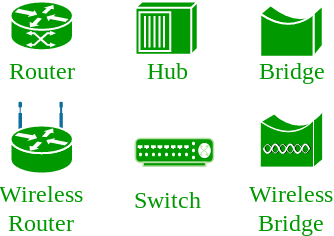Reliable, efficient, and secured way to run Kubernetes clusters
Containerized Application Management at Scale:-
- Google Kubernetes Engine (GKE) is a managed, production-ready environment for deploying containerized applications. It brings our latest innovations in developer productivity, resource efficiency, automated operations, and open source flexibility to accelerate your time to market.
- Launched in 2015, Kubernetes Engine builds on Google's experience of running services like Gmail and YouTube in containers for over 12 years. Kubernetes Engine allows you to get up and running with Kubernetes in no time, by completely eliminating the need to install, manage,and operate your own Kubernetes clusters.


Deploy a Wide Variety of Applications
Kubernetes Engine enables rapid application development and iteration by making it easy to deploy, update, and manage your applications and services. Kubernetes Engine isn't just for stateless applications either; you can attach persistent storage, and even run a database in your cluster. Simply describe the compute, memory, and storage resources your application containers require, and Kubernetes Engine provisions and manages the underlying cloud resources automatically. Support for hardware accelerators makes it easy to run Machine Learning, General Purpose GPU, High-Performance Computing, and other workloads that benefit from specialized hardware accelerators.

Operate Seamlessly with High Availability
Control your environment from the built-in Kubernetes Engine dashboard in Google Cloud console. Use routine health checks to detect and replace hung, or crashed, applications inside your deployments. Container replication strategies, monitoring, and automated repairs help ensure that your services are highly available and offer a seamless experience to your users. Google Site Reliability Engineers (SREs) constantly monitor your cluster and its compute, networking, and storage resources so you don't have to, giving you back time to focus on your applications.

Scale Effortlessly to Meet Demand
Go from a single machine to thousands: Kubernetes Engine autoscaling allows you to handle increased user demand for your services, keeping them available when it matters most. Then, scale back in the quiet periods to save money, or schedule low-priority batch jobs to use up spare cycles. Kubernetes Engine helps you get the most out of your resource pool.

Run Securely on Google's Network
Connect to and isolate clusters no matter where you are with fine-grained network policies using Global Virtual Private Cloud (VPC) in Google Cloud. Use public services behind a single global anycast IP address for seamless load balancing. Protect against DOS and other types of edge attacks on your containers.

Move Freely between On-premises and Clouds
Kubernetes Engine runs Certified Kubernetes ensuring portability across clouds and on-premises. There's no vendor lock-in: you're free to take your applications out of Kubernetes Engine and run them anywhere Kubernetes is supported, including on your own on-premises servers. You can tailor integrations such as monitoring, logging, and CI/CD using Google Cloud Platform (GCP) and third party solutions in the ecosystem.

Migrate existing VMs directly into containers
Use Migrate for Anthos to move and convert workloads directly into containers in Google Kubernetes Engine (GKE). Target workloads can include physical servers and VMs running on-premises, in Compute Engine, or in other clouds, giving you the flexibility to transform your existing infrastructure with ease. Best of all, Migrate for Anthos is available at no additional cost and it does not require an Anthos subscription.

KUBERNETES ENGINE FEATURES:
- Identity & Access Management
- Control access in the cluster with your Google accounts and role permissions.
- Hybrid Networking
- Reserve an IP address range for your cluster, allowing your cluster IPs to coexist with private network IPs via Google Cloud VPN.
- Security and Compliance
- Kubernetes Engine is backed by Google security team of over 750 experts and is both HIPAA and PCI DSS 3.1 compliant.
- Integrated Logging & Monitoring
- Enable Stackdriver Logging and Stackdriver Monitoring with simple checkbox configurations, making it easy to gain insight into how your application is running.
- Auto Scale
- Automatically scale your application deployment up and down based on resource utilization (CPU, memory).
- Auto Upgrade
- Automatically keep your cluster up to date with the latest release version of Kubernetes. Kubernetes release updates are quickly made available within Kubernetes Engine.
- Auto Repair
- When auto repair is enabled, if a node fails a health check Kubernetes Engine initiates a repair process for that node.
- Resource Limits
- Kubernetes allows you to specify how much CPU and memory (RAM) each Container needs, which is used to better organize workloads within your cluster.
- Container Isolation
- Use GKE Sandbox for a second layer of defense between containerized workloads on Google Kubernetes Engine (GKE) for enhanced workload security.
- Stateful Application Support
- Kubernetes Engine isn't just for 12-factor apps. You can attach persistent storage to containers, and even host complete databases.
- Docker Image Support
- Kubernetes Engine supports the common Docker container format.
- Fully Managed
- Kubernetes Engine clusters are fully managed by Google Site Reliability Engineers (SREs), ensuring your cluster is available and up-to-date.
- OS Built for Containers
- Kubernetes Engine runs on Container-Optimized OS, a hardened OS built and managed by Google.
- Private Container Registry
- Integrating with Google Container Registry makes it easy to store and access your private Docker images.
- Fast Consistent Builds
- Use Google Cloud Build to reliably deploy your containers on Kubernetes Engine without needing to setup authentication.
- Workload Portability, on-premises and cloud
- Kubernetes Engine runs Certified Kubernetes, enabling workload portability to other Kubernetes platforms across clouds and on-premises.
- GPU support
- Kubernetes Engine supports GPU and makes it easy to run ML, GPGPU, HPC, and other workloads that benefit from specialized hardware accelerators.
- Built-in dashboard
- Cloud Console offers useful dashboards for your project's clusters and their resources. You can use these dashboards to view, inspect, manage, and delete resources in your clusters.
- For Training:-
- http://www.halcyon.net.in/gcp.php












